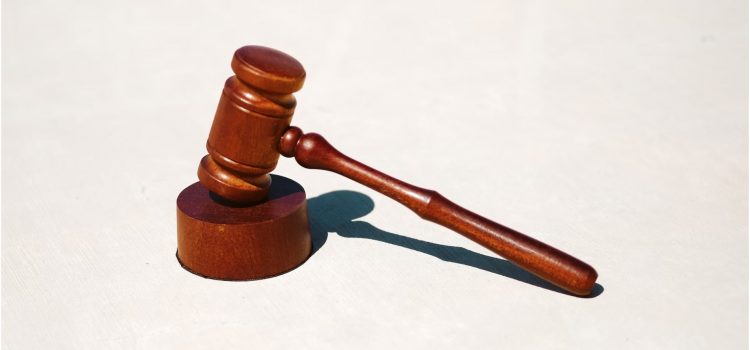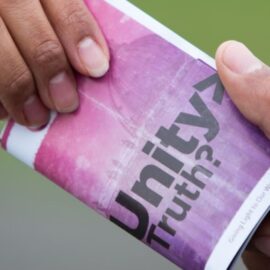
This is a free excerpt from one of Shortform’s Articles. We give you all the important information you need to know about current events and more.
Don't miss out on the whole story. Sign up for a free trial here .
What are the U.S. federal gun laws? What’s most important to know?
Gun laws in the United States are complex and constantly debated, which can make it difficult to understand which firearms are prohibited or allowed. U.S. federal gun law further complicates the situation by introducing additional restrictions to general gun laws.
Read on for an overview of gun laws in the U.S., including special restrictions under U.S. federal law.
The Intricacy of U.S. Gun Laws
It’s clear why gun owners need to understand gun laws: Breaking gun laws, even accidentally, can result in fines, prison time, and other serious consequences. But even if you have no interest in owning firearms yourself, it’s still important to understand both the general and U.S. federal gun laws for several reasons.
For one thing, gun laws are a subject of ongoing political debate, so you need to understand the current laws to discuss proposed changes knowledgeably. You don’t want to be the guy who suggests a new gun control plan, only to have someone else inform you that the law you’re proposing was passed by Congress in 1968. For another thing, guns are so prolific in the United States that there are many possible situations in which you—or someone you care about—might come in contact with one.
For example, maybe your grandfather recently passed away in Mississippi, and you’re cleaning out his estate. In your grandfather’s attic, you find a trunk of souvenirs that he brought back from the Vietnam War, including a rusty old Vietnamese pistol. A friend who’s helping you clean out the estate sees it and exclaims, “Hey, I have an uncle in Texas who collects this kind of stuff. I bet if we just shipped it to him he’d tell you what it’s worth, and buy it from you if it’s worth anything.” Would you do it? If you did, you could end up doing prison time.
Or what if your coworker mentions that her new boyfriend is ‘a big gun collector’ and asked her to help him ‘add to his collection.’ He gave her a list of specific makes/models of firearms to look for at gun stores and purchase for him if possible, promising to pay her back whatever she spent, plus an additional $100 per gun for her time. Would you know to warn her that purchasing a gun for someone else is a federal crime? Would you recognize that her boyfriend’s request resembles a common ruse used by illicit arms dealers to acquire the guns that they sell on the black market?
In this article, we’ll provide an overview of U.S. federal gun laws, so you can recognize legal pitfalls like the scenarios above and discuss the politics of federal gun laws. We’ve broken down U.S. gun law into three categories: Things that are prohibited, things that are allowed, and things that are allowed with certain restrictions.
Note that some states and municipalities have additional laws. Also note that this article doesn’t constitute legal advice. If you need legal counsel, contact an attorney who is licensed to practice law in your state.
What’s Prohibited: Prohibited Persons
In the United States, certain people are prohibited from purchasing, owning, and using firearms based on their criminal record or other criteria. People who can’t have firearms also can’t have ammunition. Based on U.S. code Title 18 § 922, prohibited people include anyone who:
- Has been convicted of any of the following crimes:
- A felony
- Any crime punishable by more than a year in prison
- Any crime of domestic violence, even if it was a misdemeanor
- Is wanted, or has an arrest warrant
- Has been committed to a mental institution, or otherwise deemed “mentally defective”
- Is subject to a restraining order that relates to threatening or harassing an intimate partner
- Is a drug addict
- Received a dishonorable discharge from the armed forces
- Has renounced U.S. citizenship
- Is illegally in the United States
It is illegal to provide firearms or ammunition to anyone whom you have reason to suspect may be prohibited from possessing them. Firearms dealers are required to check each customer against a federal background check database to verify that the buyer isn’t a prohibited person before selling her a gun.
Only commercial dealers have access to the background check database. If you’re not a dealer but you’re selling a gun for some reason (such as liquidating a deceased relative’s estate) you’re not required by law to perform a background check on the buyer, but there are several ways you can make sure you don’t accidentally sell the gun to a prohibited person:
- Have the buyer sign a statement certifying that she’s legally eligible to own firearms.
- Require the buyer to show you her concealed weapons permit. Each state has its own criteria for issuing concealed weapons permits, and not all gun owners have (or need) permits, so this could reduce the number of possible buyers. But a person has to pass a background check to get a permit, so it shows she’s not prohibited from owning guns.
- Sell the gun to a federally licensed firearms dealer, who will then resell it. You’ll probably get less money for the gun, because the dealer needs to be able to resell it at a profit, but the convenience may be worth it, especially if you have to liquidate an entire gun collection.
- Put the gun up for auction through an auction house that is licensed to deal in firearms. Again, you may not end up with as much cash in hand because the auction company will charge a fee and/or take a percentage of the selling price, but it’s a convenient option, because they’ll handle the sale process.
Straw Purchases
Prohibited persons, such as convicted criminals, can’t legally purchase or own firearms. But criminals still obtain guns illegally, by stealing them, by buying guns that are already on the black market, or through “straw purchases.” A straw purchase is when one person buys a gun (and passes the background check) on behalf of someone else. Illicit arms dealers, in particular, often recruit people who have clean records to buy guns for them, which they then sell on the black market.
Most illicit arms dealers would already be on the list of prohibited persons and, as we’ve discussed, it’s illegal to deliver a gun to anyone you suspect of being prohibited. However, making a straw purchase is illegal, regardless of whether the person you’re buying the gun for is prohibited from receiving it.
What’s Allowed
In general, any adult in America who is not a prohibited person is allowed to buy guns and ammunition. When buying a gun from a dealer, the buyer has to show a photo ID and fill out a form certifying that he’s not a prohibited person. As we mentioned, the dealer also performs a background check on the buyer. But, in most cases, that’s about all there is to it.
Beyond the dealer’s record of the sale, most guns don’t have to be federally registered. A person can buy and own as many guns as he wants (or can afford) with no federal limit. And, as far as U.S. federal gun law is concerned, a person doesn’t need any special training to buy a gun, although most states do require context-specific training prior to using a gun in certain ways.
For example, to obtain a hunting license you generally have to complete some kind of hunter education class. Similarly, some states require you to obtain a concealed weapons permit before carrying a firearm for personal protection in public, and the process of obtaining a permit usually includes completing a class in defensive firearms training.
Private Sales
In general, anyone who has a gun can also sell it to anyone else, without filling out any forms or obtaining any licenses or permits, provided the following conditions are met:
- The seller has no reason to believe the buyer is a prohibited person
- The buyer and the seller live in the same state
- The buyer and seller conduct their transaction in person
Modifications and Homemade Guns
In general, anyone who legally owns a gun in America is allowed to repair, customize, or modify it. For that matter, anyone who can legally own guns is allowed to make her own guns from scratch. The exception to this would be when the modified or homemade gun meets the description of a firearm that is specially restricted under U.S. federal gun laws. We’ll discuss these restrictions next.
Restrictions Under U.S. Federal Gun Laws
Under U.S. federal gun laws, certain types of firearms and certain activities related to firearms are subject to additional restrictions. Now that we’ve covered universal prohibitions and what’s generally allowed, let’s go over these special restrictions.
Doing Business
As we’ve discussed, a person who’s not prohibited from owning firearms can generally buy, sell, and make guns without needing a license from the federal government. However, if you want to engage in the business of manufacturing, importing, or dealing in firearms, then you need a federal firearms license (FFL). As defined in U.S. code Title 18 § 921, you are “engaged in business” if you spend time procuring or distributing guns with the intention of making a profit. The law doesn’t specify any minimum threshold for how much time you have to spend, so anyone who handles guns with a profit motive generally needs an FFL.
Traveling and Shipping
Additionally, a person with an FFL is only allowed to sell guns to people who live in the same state where he has his place of business and to other people who have FFLs. And, with a few exceptions, only people with FFLs are allowed to ship guns and receive guns that have been shipped. So, if you want to buy a gun from someone who lives in another state, you’ll have to have a licensed dealer in that state ship it to a licensed dealer in your home state to facilitate the sale.
However, U.S. federal gun law also guarantees that a gun owner can bring his guns along when he travels, for his own personal use. For example, if a hunter who lives in Pennsylvania wants to go on an elk hunt in Colorado, he can drive from Pennsylvania to Colorado and back with his hunting rifle in his car. He doesn’t need to seek assistance from any licensed firearms dealers on the trip.
He could also fly to Colorado with his rifle in his luggage, although airline protocols impose some additional requirements, such as locking the rifle in a hard-sided luggage case, and declaring that the case contains a firearm at the luggage check-in counter.
School Zones and Federal Facilities
Although American adults are generally allowed to buy and own guns, there are certain places where most people can’t legally bring their guns. The two places where U.S. federal gun law generally prohibits firearms are school zones and federal facilities.
A “school zone” includes the premises of any K-12 school and extends outward 1,000 feet, although it doesn’t include other private property that may be in that zone. College campuses are not school zones under federal law, although some states have laws prohibiting guns on college campuses as well.
A “federal facility” typically means a building owned or leased by the federal government. It also refers to the premises of a post office, military base, or national laboratory. Historically, national parks were also considered federal facilities, but in 2010 Congress passed a law that changed their classification. So now it’s legal to carry guns in national parks, but not in federal buildings in those parks (such as visitor centers and ranger stations), because the buildings are still federal facilities.
There are exceptions to the law that allow law enforcement personnel, soldiers, security officers, and other authorized employees to have guns at federal facilities and in school zones.

Want to fast-track your learning? With Shortform, you’ll gain insights you won't find anywhere else .
Here's what you’ll get when you sign up for Shortform :
- Complicated ideas explained in simple and concise ways
- Smart analysis that connects what you’re reading to other key concepts
- Writing with zero fluff because we know how important your time is






